Contact center of the Ukrainian Judiciary 044 207-35-46
ABOUT THE SUPREME COURT
FOR CITIZENS
ACTIVITY
PRESS-CENTER
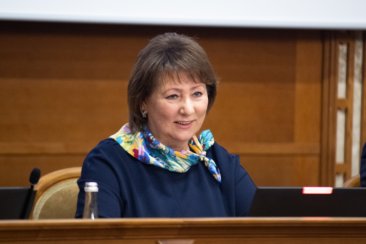
That was underlined by the President of the Supreme Court Valentyna Danishevska at the meeting with the heads of the appellate courts of general, commercial and administrative jurisdiction, which took place at the premises of the Civil Cassation Court within the Supreme Court on 26 February 2021.
This meeting was also attended by Bohdan Lvov, Vice-President of the Supreme Court - President of the Commercial Cassation Court, Mykhailo Smokovych, President of the Administrative Cassation Court, Stanislav Kravchenko, President of the Criminal Cassation Court and Borys Hulko, President of the Civil Cassation Court.
Speeches were also delivered by Andrii Kostin, Head of the Verkhovna Rada Committee on Legal Policy, Andrii Ovsiienko, Head of the High Council of Justice, Bohdan Monich, Head of the Council of Judges of Ukraine, Liudmyla Gizatulina, acting Head of the State Judicial Administration of Ukraine.
Valentyna Danishevska noted that 2020 was not easy because of the hardship the whole judicial system had to go through. The pandemic made its “input” into the plans of the justice development, and even so it encouraged courts to be active in all areas. The courts have been operating in a routine regime without stopping for a day.
The President of the Supreme Court provided statistics based on the last year’s results. Particularly, in 2020, there were 4.3 million cases and materials pending before the courts of Ukraine, which is 5% less than in 2019 and almost coincides with the 2018 index. The total income is 3.7 million cases and materials, which is 7% less than in 2019, and coincides with the respective index in 2018. The total consideration varies at the level of 3.5 million cases and materials, which is 9% less than in 2019, and fully corresponds to the 2018 level of consideration.
“Even though, there is still a high call for judicial services, an overall decline in the number of cases filed before the courts could be noted, primary because of the pandemic", said the speaker.
She noted a tendency towards increasing a number of cases received by the circuit administrative courts and local commercial courts, which received 44% and 5% more, respectively. As to the administrative cases, Valentyna Danishevska reminded that they concerned lawsuits against the state, whereby there has been a doubled increase of appealing to administrative courts in the social disputes.
As to the cases of commercial litigation, there is an increasing by a third in a number of applications for the issuance or revocation of a court order. The same concerns civil cases, where the number of relevant applications increased by a quarter. Thus, it could be seen that the institution of a court order becomes widely effective and applied.
In local general courts, there is a tendency towards decreasing of civil cases, primarily due to the 1\3 reduction of applications in separate proceedings.
The total income of cases and materials of criminal proceedings decreased by 28% (almost 932 000), which is primarily because of the decrease in the number of petitions (270 000) received by investigating judges. This decrease has been resulted from amending the CrimPC of Ukraine in part of procedure for conducting forensic examinations.
Last year, almost 2.7 million cases and materials were considered by local general courts, which is 12% less than in the previous year; 104 000 cases - by local commercial courts, which is 4% more than in the previous year; 250 000 cases and materials - by district administrative courts, which is 28% more than in the previous year.
Valentyna Danishevska noted interesting statistics of disputes in the social area: in 2020, administrative courts upheld 89% of lawsuits against the state, which is 9% more than in 2019. 83% of lawsuits were upheld in disputes arising from public service relations. “This tendency requires an immediate reaction from the bodies of state power, which have to tailor their activities to such a case law and to prevent further violations”, said the President of the Supreme Court.
She also noted that the staff shortage in the courts of the first instance is 28%; in the courts of appeal - 33%. The appellate general courts have the highest percentage of vacancies.
Meantime, 476 000 cases and materials were submitted to the courts of appeal in 2020. That means that approximately 13% of decisions are appealed to the courts of appeal. The others (87%) become effective after the decision of the court of first instance, which demonstrate quite a high level of trust in these decisions.
As Valentyna Danishevska noted, despite the introduction of cassation filters, percentage of appealing against decisions of appellate courts to the Supreme Court remains in place. This is caused by a certain legal tradition, though the Supreme Court accepts far less cases that makes it possible to reduce a balance of the last year, for example, to almost 20 000 cases.
The President of the Supreme Court also raised an issue of inappropriate funding of the judiciary. She reminded that last year the Supreme Court was forced to defend financial independence of judges and appealed to the Constitutional Court of Ukraine several times.
"In our state, the importance of judicial independence is underestimated and not even perceived. Every day we hear that the court must be independent and impartial, yet little is being done to that end”, said Valentyna Danishevska.
She also paid attention to the issue of trust in the judiciary. In particular, she reminded that citizens receive information about the courts activity mainly from the media. On the other hand, according to the survey made by Razumkov Center and publicized in December last year, the level of trust of persons who have their own experience with the courts is high. That has positively affected their balance of trust in the courts and judicial system.
Therefore, the President of the Supreme Court underlined the importance of improving communication of judges with media and society. That will help to educate citizens about the courts activity and to increase confidence in the court. As she added, "We will work to make the legislative and executive powers aware of the fact that authority of judiciary summarizes success not only of the judicial system but of the state and governmental bodies at large".
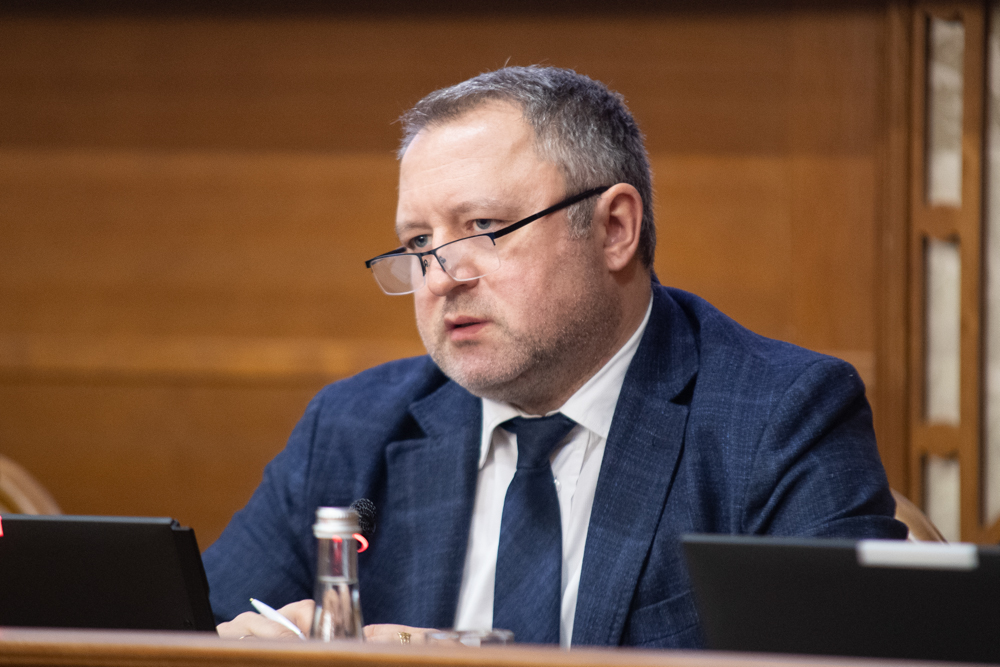
Andrii Kostin said, that last year effective communication has been developed between the Verkhovna Rada Committee on Legal Policy and the judiciary. As he said, "This communication is a pledge of the quickest solution of the problems faced by the judiciary".
The speaker also noted that society requires fairness from the executive and legislative branches, and local governments. However, it shifts the responsibility for injustice on the court, since it is their last hope for the restoration of justice. In case of a citizen’s dissatisfaction with the governmental actions, he/she goes to the court and then when receives an unhappy court decision, - criticizes the judiciary solely.
The Head of the Verkhovna Rada Committee pointed out that some politicians and political forces, media, public organizations benefited from this situation, whereas judiciary has been constantly under the pressure. "We have to change this situation," he said. He also underlined that judges should talk more with public.
In addition, in the context of the judicial shortages problem, Andrii Kostin promised that the relevant committee of the Verkhovna Rada will do everything to make the High Qualification Commission of Judges operational.
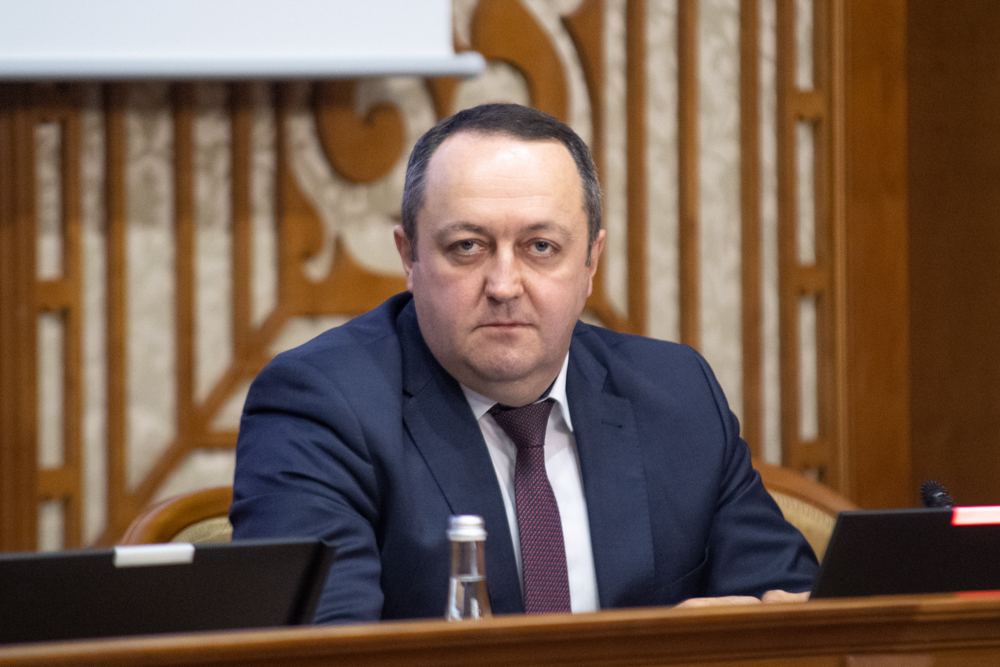
Andrii Ovsiienko said that, as in the past, consideration of disciplinary cases encompasses the largest share of the HCJ’s work. Last year, the number of such cases increased to 10 489 (in 2019 there were 9 800 cases). Taking into account the remains of 2020, the HCJ considered 13 425 complaints. As he indicated, "This is a huge number of cases given the number of judges that remains in the judicial system today".
However, according to him, 141 judges were brought to the disciplinary liability last year, and 14 judges were dismissed.
In the context of staff shortages in the judicial system, Andrii Ovsiienko noted that last year the HCJ submitted to the President of Ukraine 530 applications as to the general local courts appointments, as well as - 74 relevant applications for the five-years judges.
However, there are still 1 900 judicial vacancies. In 2020, 249 judges were dismissed due to their applications on resignation, and three judges – on their own wish. Another 29 judges were dismissed under procedural circumstances: disciplinary misconduct and following-up a qualification assessment. "If to compare, one can see that a positive balance of 100 people is an extremely unsatisfactory indicator to note progress in the cadre policy," - said the speaker.
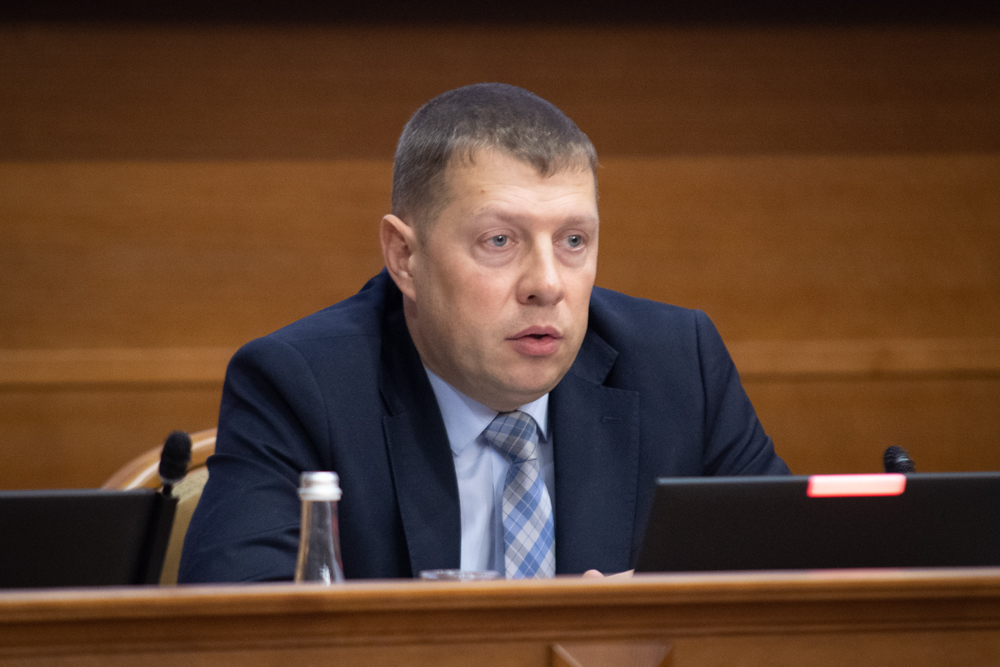
Bohdan Monich noted a well-established dialogue in recent years between the bodies of judicial authority - the SC, the HCJ, COJ with the purpose to solve the problems of the judiciary, in particular, of staffing and financing.
The Head of the COJ noted that communication between the judiciary and the relevant committee of the Verkhovna Rada became better last year. "The judiciary is beginning to be heard, its representatives are present at almost all the meetings of the committee, that is so positive", said Bohdan Monich, and expressed hope that the Ministry of Finance would finally find a common language with the State Judicial Administration and provide sufficient funding to the judiciary.
The speaker also stressed that the staff shortage affects the quality of justice. Moreover, judges are subjected to unjustified criticism. Bohdan Monich noted that last year the courts ruled 162 000 decisions in criminal cases. Despite the fact that there are only some decisions that are truly high-profile, the entire judiciary has been criticized.
According to him, the judiciary should work like a clockwork to increase the public confidence. But it is a very complicated task due to the current staff shortage. If judiciary is well staffed, the quality of justice is strengthened.
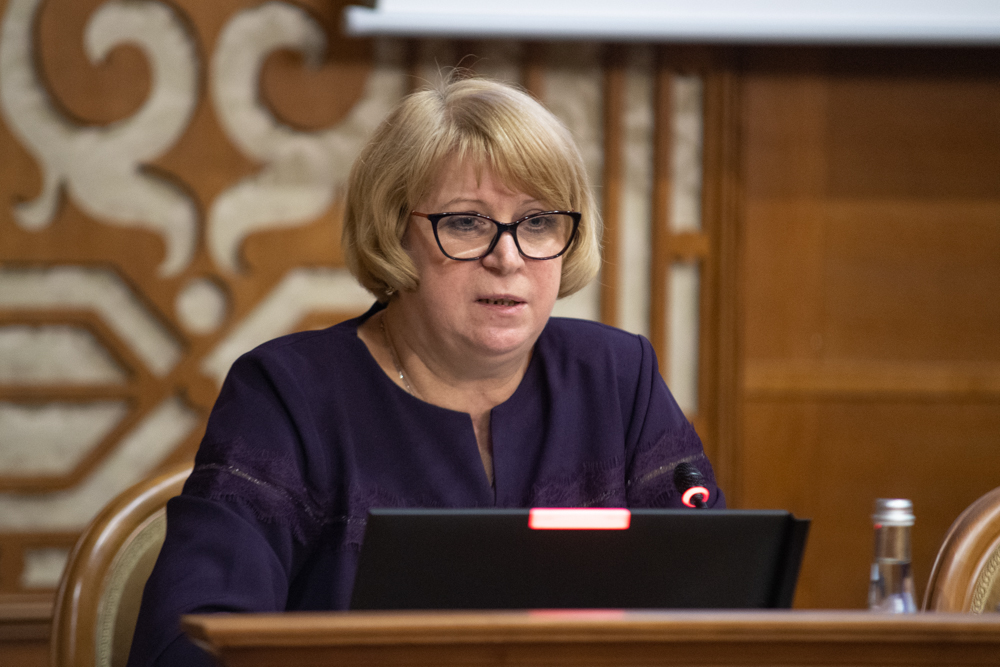
Liudmyla Gizatulina spoke about the budget for the judiciary and the financial problems associated with it. In particular, she paid her attention to the lack of funds to pay for the housing maintenance services, providing courts with the postage stamps etc. She also spoke about complicated situation with the courts’ staff payments. The budget funds provide the average salary for the actual number of employees at the level of 9 750 UAH. This amount does not cover even the main components of salary: fixed salary, rank and length of service. Liudmyla Gizatulina hopes that this problem will be settled.
Presentation of Valentyna Danishevska is available at: https://bit.ly/2Oh6a1n.